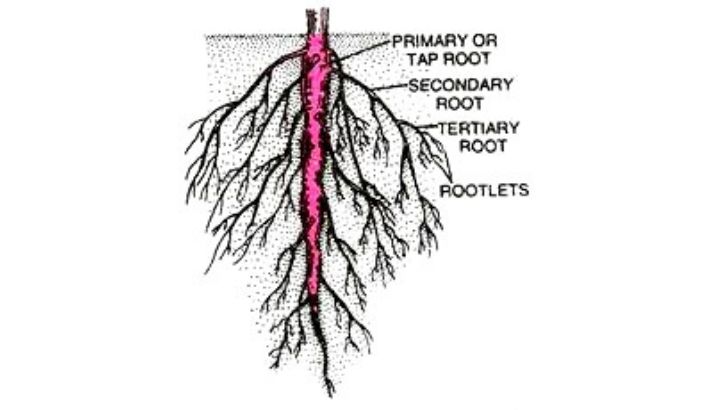Ecology: The importance of soil health in farming


The role of roots in plant growth. Photo: Supplied.
John Barnes, Fertilizer New Zealand
Ecology is not something we often think about in our daily lives, yet every action we take has a reaction. This principle applies strongly to farming—every decision a farmer makes has consequences on the environment. Even a simple action like irrigating a field triggers a chain of events: grass grows, animals thrive, the farmer experiences less stress, earthworms become active, clovers begin producing nitrogen, and plant root systems absorb nutrients. The entire ecosystem begins to function as it should.
The foundation of farming: Soil health; Soil is the starting point of all life in farming. It is not merely a medium for plants to stand in while receiving water and fertiliser at a prescribed rate. Soil should be alive. Observations show that newly converted pastureland can thrive with minimal fertiliser and the right seed mix, while other land remains unproductive despite conventional farming techniques. The key factor here is not just the soil composition or the amount of fertiliser and water applied—it is the presence of life within the soil.
Healthy soil is teeming with biodiversity, consisting of millions of species of microbes, fungi, earthworms, and other organisms that contribute to plant health. However, human actions can negatively impact this biodiversity. For instance, glyphosate, while effective in killing weeds, also acts as a fungicide, reducing the microbial diversity of the soil. There are many other ways in which beneficial microbes and fungi can be diminished, affecting overall soil health and plant productivity.
The role of roots in plant growth; Roots play a crucial role in plant development beyond simply anchoring the plant. They actively seek out nutrients required for growth, much like a highway with constant traffic moving in both directions. These nutrients circulate through the plant’s sap, sustaining its overall health.
Key functions of roots include: Nutrient Absorption: Roots extract essential nutrients from the soil, ensuring proper plant development. Nutrient Circulation: They transport nutrients from the soil to the stems and leaves, serving as the plant’s natural lifeline. Health Regulation: Roots can detect and absorb remedies essential for plant health, acting as a natural defense system. Nutrient Storage: They store excess nutrients for future use, ensuring the plant’s resilience during periods of scarcity.
The bigger picture; Understanding the interactions within the soil is vital for sustainable farming. When biodiversity is nurtured, the entire ecosystem benefits, leading to healthier plants, better crop yields, and a more balanced environment.
Farmers must recognize the importance of soil health and adopt practices that support rather than diminish the life within it. By doing so, they ensure long-term sustainability for both their farms and the environment as a whole.
For information on a nutrient plan that supports soil structure, call our team 0800 337 869 or email [email protected]
